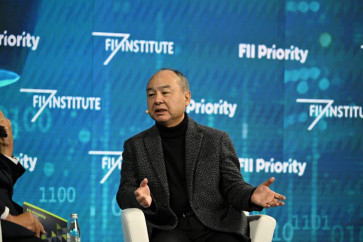Popular Reads
Top Results
Can't find what you're looking for?
View all search resultsPopular Reads
Top Results
Can't find what you're looking for?
View all search resultsPandora’s Box of providing JKN
The third of five presidential candidate debates is slated for March 17
Change text size
Gift Premium Articles
to Anyone
T
he third of five presidential candidate debates is slated for March 17. Both candidates, the incumbent President Joko “Jokowi” Widodo, with running mate Ma’ruf Amin, and Prabowo Subianto, with Sandiaga Uno, are no doubt preparing materials to give their best performance.
A central topic of the third debate is to be health. After five years, the National Health Insurance (JKN) operated by the Healthcare and Social Security Agency (BPJS Kesehatan), has faced several hiccups. Amid election tensions, it would not be surprising if issues around the JKN arise even more.
Some bombastic statements around health have been made by Jokowi’s rival. In Prabowo’s speech entitled “Indonesia triumphs”, Prabowo claimed the financial difficulties of BPJS Kesehatan had greatly affected the quality of hospital services. He has also remarked: “Doctors’ salaries are lower than parking attendants’ wages.”
This jaw-dropping statement turned out to not be completely wrong. As impossible as it may seem, some general practitioners are paid less than Rp 3 million (US$210) for 180 hours of work per month.
In fact, hundreds of other physicians have long aired their grievances over the low fees they are paid for treating patients in the era of the JKN program. The medical rates and consultation fees as set in the JKN reimbursement system are too low, affecting physicians’ ability to provide optimum services.
The JKN scheme pays private and government healthcare providers based on the so-called Indonesia Case-Based Groups (INA-CBG) package, which applies a fee-for-diagnostic reimbursement system. It replaces the previous fee-for-service reimbursement system. This, unfortunately, significantly affects the profit margins of hospitals, as well as the wages of healthcare providers.
For example, the consultation fee received by general practitioners who treat JKN patients is about Rp 5,000 (36 US cents) per patient and is promised to be repaid within 12 days.
However, this can actually take up to three months, forcing hospitals to use their deposited funds to pay healthcare professionals. This just causes another problem as the hospitals lack savings to pay the mounting claims of medication or medical devices.
As stated by the president director of a government-run main referral hospital, Cipto Mangunkusumo Hospital, the JKN should not affect a hospital’s service and treatment. One thing a hospital can do is implement successful cross-subsidies from patients using services outside JKN.
Hospitals need to make careful decisions to maintain standards without creating problems in hospital cash flow by maintaining a balance between out-of-pocket, private insurance, corporate paid and JKN patients. Regulations on the physician’s choice of medical supplies and drugs suitable for each patient are also pivotal.
In addition, healthcare providers need to be strategic in proposing budgets aiming for provision of standard services without making a loss. Here human resource (HR) staff members play a crucial role in managing manpower and head counts to stabilize the load of patients and maintain high quality of care services.
For example, the lower pay-out rate of the INA-CBG package would require HR to strategize and make medical staff work more effectively and efficiently maximize the returns.
Despite many flaws, the JKN has undoubtedly helped health care in Indonesia. The government certainly has a central role in addressing the JKN’s problems and it has taken some remarkable actions.
Besides tapping into the state’s budget, a presidential regulation mandated the use of 50 percent of the tobacco excise for health services. Unfortunately, this funding barely helped to bring the agency out of the red, as it faced an estimated Rp 10.99 trillion deficit.
Besides ensuring the well-being of society, we should not neglect the well-being of healthcare providers. Despite being strongly related to community service, healthcare providers also need to live with a decent salary. If it is still being underpaid, the medical profession may be less attractive to brilliant students.
In this case, federations such as the Indonesian Doctors’ Association (IDI) and BPJS should discuss JKN-related policies thoroughly beforehand. For example, they have to be more considerate in calculating the suitable premiums the JKN users have to pay, to ensure both well-being of doctors and society. Many experts said the main issues behind the recurring deficit might be the underpriced premiums, which now range from Rp 25,000 to Rp 80,000 per month.
At last, society also has the same important role in addressing JKN problems. The deficit in BPJS Kesehatan would only accumulate as the number of inactive participants increases. Sigit Priohutomo, then chairman of the National Social Security Council, said in mid-2018 that the number of inactive JKN participants was 17.37 million out of 199 million. Because they do not pay their premiums, BPJS Kesehatan would have a deficit of at least Rp 800 billion per month.
Besides demanding their rights to access low-cost health care, people must not ignore their obligation to pay JKN premiums every month.
_______________________
The writer is a physician who previously worked at a private hospital and is studying for a Master’s degree in public health at Harvard University.










